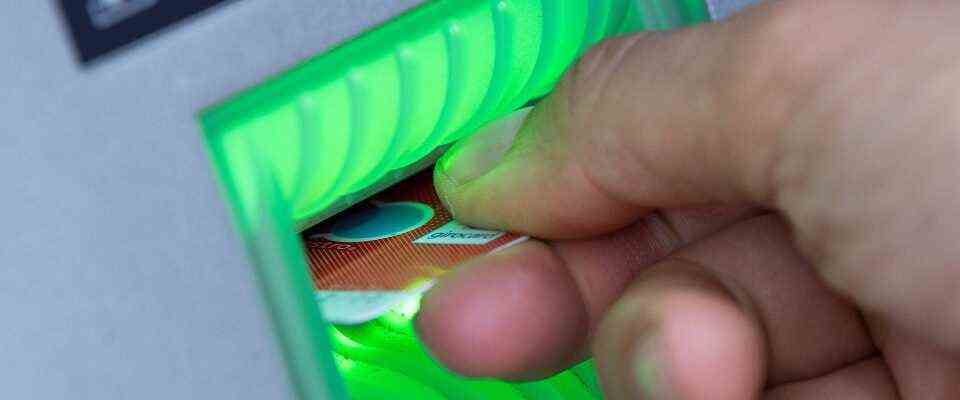Independent ATM operators like to set up their lucrative devices in tourist centers, where they can collect high fees. The city of Berlin is now engaged in a legal war with the provider Euronet.
E.There are things that many take for granted and find practical – except when they are put right in front of their noses. Wind turbines, for example. Cell towers. Or ATMs. ATMs? Yes, you read that right. These can only be found practical as long as they are not in your own doorway or illegally on public property.
An ATM in your own house entrance sounds absurd at first. But it is precisely this kind of wild growth that has occurred in Berlin over the past few years. One is easily inclined to dismiss this as a petitesse if it does not exemplify several problems. But from the beginning.
Cash can still be a profitable business for ATM operators. Customers can feel this in the fees when they withdraw money outside of their own banking group. It gets really expensive with independent operators, where each cash withdrawal can cost up to 8 euros. This can quickly pay off, which is why the number of independent ATMs is growing rapidly: in 2018 there were more than 4,000, today it should be more than 5,000.
Unsuspecting tourists
They pay off especially in tourist areas, as international users are not familiar with the German subtleties of cash groups, savings banks and cooperative banks. But since independent ATM operators don’t have branches, they need to be more creative in choosing a location. That is why there are these ATMs, for example, in many kiosks that collect rent for them. But at some point the number of kiosks is limited and more than one ATM in the kiosk makes no sense.
And this is where Berlin comes in again. Because ATM operators there – Euronet in particular excels here – a cat-and-mouse game with the responsible districts. It seems to go according to the motto: Test what works. House entrances were also rented out.
That doesn’t sound too bad at first, but it can quickly become very annoying for the tenants: For example, when drunken hordes pull their cash at the ATM at night. Or when devices hum loudly all night. Or when the new sofa arrives, which then no longer fits through the house entrance. But the legislature has little leeway here: If a house is not listed, such machines can be set up without a permit. The situation is different when legal requirements are violated, for example when it comes to escape routes that are blocked. But the legal path is long and arduous.
The Berlin district of Pankow had to find out how difficult it can be. There are several Euronet machines in front of house facades on the city’s own property. On the other hand, the responsible building city council imposed a fine on the Greens in 2018 and demanded that it be dismantled. The amount is 450 euros in the first case and 900 euros each for the recurrence. However, the operator has lodged an objection and filed a lawsuit. And a legal battle has been going on ever since.
Amsterdam as a model?
Immediate execution has been suspended by the Administrative Court and the Higher Administrative Court, and a judicial decision is now being awaited. It could be years before the matter was judged. The operator Euronet did not respond to a request from the FAZ. The residents can only hope for so long that the interest in cash will continue to evaporate, so that at some point the machines will become unprofitable and will be dismantled.
Unlike Berlin, Amsterdam is doing it and is proactively taking action against new machines: in general, you don’t want to approve any new machines in the facades.

